
Reconciling irreconcilables is a great Indian virtue. When the Constituent Assembly was divided over whether to call our country 'India' or 'Bharat', our founding fathers and mothers found the perfect compromise in drafting the Republic's foundational document, referring to "India, that is Bharat" and making both sides happy. The Preamble speaks of "We, the People of India" in English, and "Bharat ke log" in Hindi. Article 52 declares, in English, that "There shall be a President of India", and in Hindi calls the position "Bharat ke Rashtrapati". A simple, uncomplicated practice followed from all this: in English, and therefore internationally, our country was referred to as 'India'; in Hindi and other Indian languages, 'Bharat' was our country's name.
It worked, just as the country known in English as 'Germany' is Deutschland at home and to all who speak Deutsch (the language we refer to as 'German'). Nobody in that proud country, whose nationalism was at one time far more ferocious than ours, insisted that English speakers had to call them Deutschland too.
But what has worked for 76 years, and for a few millennia before that, is apparently not good enough for our government. The sudden unsettling decision to have the President of India issue formal invitations as "the President of Bharat" and for the prime minister to sit behind a name-plate at the G20 summit saying 'Bharat' in the Roman script, rather than 'India', has sparked off a controversy that is both pointless and totally unnecessary. Why tamper with an arrangement that was working perfectly satisfactorily? As the Americans like to say, "if it ain't broke, why fix it?"
Esta historia es de la edición September 25, 2023 de India Today.
Comience su prueba gratuita de Magzter GOLD de 7 días para acceder a miles de historias premium seleccionadas y a más de 9,000 revistas y periódicos.
Ya eres suscriptor ? Conectar
Esta historia es de la edición September 25, 2023 de India Today.
Comience su prueba gratuita de Magzter GOLD de 7 días para acceder a miles de historias premium seleccionadas y a más de 9,000 revistas y periódicos.
Ya eres suscriptor? Conectar
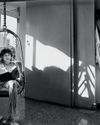
He gave the beat to the world
He would pick up the rhythms of each experience of mobility and weave them into his taals. Thus it was that he reflected joy and laughter in rhythmic cycles...such was the magic of Zakir's fingersText and photographs by Raghu Rai
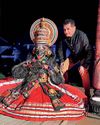
KERALA TOURISM CAMPAIGN, 1989 - TICKETS TO PARADISE
All it took was a catchy tagline-'God's Own Country'-for the world to discover Kerala's wealth of natural beauty. It remains among the best tourism ad campaigns, earning the state a place among top 10 international destinations

SPIRITUALITY - THE GURUS OF COOL
Among the cult Indian gurus, no one had a bigger hold on western minds than 'Osho' Rajneesh. He's also perhaps the role model for the enterprise-building gurus of today
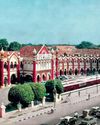
RETAIL SHOPPING - THE MALL MANIA
Shopping malls, a 1990s innovation in India, changed the way the Indian middle class shops. Their success now lies in being 'shoppertainment' destinations, offering something for everyone
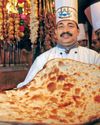
CULINARY RENAISSANCE, 1978 - TANDOORI NIGHTS
ITC's Bukhara and Dum Pukht turned the world to tandoori cuisine and had an enormous impact on the F&B industry. Decades on, they are still a pit-stop for celebrities and heads of state visiting Delhi
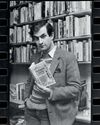
INDIAN WRITING IN ENGLISH - REVENGE OF THE NATIVE
Rushdie lit the way but Indian writing in English has taken a life of its own in the past few decades, with translated Indian fiction most recently having its moment in the sun
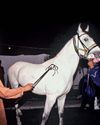
INDIAN ART - A BRUSH WITH GOLD DUST
The 1990s economic liberalisation came as oxygen, lighting up the Indian art scene. Today, artworks by established masters routinely go for astronomical amounts
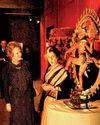
FESTIVAL OF INDIA, 1982 - CULTURE CAPITAL
The Festival of India grew into a symbol of our 'soft power', introducing our art and aesthetics to a global audience while also helping rebrand our domestic products

THE INDIPOP TREND - DISCO GOES DESI
For ages, the film song ruled. Nothing else was audible. Then came Nazia, charioteered by Biddu, and Indian ears went into a pleasant madness. Literally, Disco Deewane. A whole genre was born
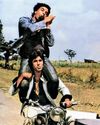
SHOLAY 1975 - THE BIRTH OF THE FANDEMIC
India had seen hits before. But Sholay seared into its collective psyche like a badland bullet. The effect was on a scale never seen before- one film creating a new mass folk culture. And a trail of monster blockbusters that still continues